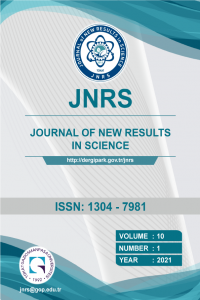A Mathematical Modelling of Success in Education
In this study, to determine the value of success within any time interval or specified time intervals, a mathematical model has been developed by taking into account “Discipline Factors”, “Teacher Factors”, “Negative Factors” and “Student Factors” as factors affecting the success of the student, class or school, positively or negatively. These factors, determining the value of success, which are the parameters of the mathematical model, was defined as real-valued linear functions, considering internal and external influences and any interventions and with the help of these functions, situations in which success is increasing, decreasing, or stable in a time interval examined by this model.
Keywords:
Education, Success, Mathematics Mathematical Model,
___
- V. I. Agoshkov, J. P. Puel, Mathematical models of life support systems, Volume I, Oxford, United Kingdom, 2009.
- L. Verschaffel, B. Greer, E. De Corte, Everyday knowledge and mathematical modelling of school word problems, Springer, Dordrecht, 2002.
- T. Malthus, An Essay on the Principle of Population, London, 1798.
- P. F., Verhulst, Notice sur la loique la populationsuit dans son accroissment, Correspodance Mathematique et Physique, 10, (1838) 113–12.
- M. Pingle, Introducing Dynamic Analysis Using Malthus’s Principle of Population, Journal of Economic Education, 34(1), (2003) 3-20.
- M. F. Brilhante, M. I. Gomes, D. Pestana, Extensions of Verhulst model in population dynamics and extremes, Chaotic Modeling and Simulation, 4, (2012) 575–591.
- Y. Sekerci, S. Petrovskii, Mathematical modelling of spatiotemporal dynamics of oxygen in a plankton system, Mathematical Modelling of Natural Phenomena, 10(2), (2015) 96–114.
- E. A. Bender, An Introduction to Mathematical Modelling, Dover Publications, New York, 2012.
- S. Thomson, J. Lokan, L. Stephen, J. Ainley, Lessons from the Third International Mathematics and Science Study, Australian Council for Educational Research (ACEReSearch), 2003.
- I. Raza, Factors affecting adoption of educational discipline and satisfaction level among higher education students, Journal of Education and Educational Development, 3(1), (2016) 100–122.
- K. Leithwood, D. Jantzi, The effects of transformational leadership on organisational conditions and student engagement, Journal of Educational Administration, 38(2), (2000) 112–129.
- ISSN: 1304-7981
- Yayın Aralığı: 3
- Başlangıç: 2012
- Yayıncı: TOKAT GAZİOSMANPAŞA ÜNİVERSİTESİ
